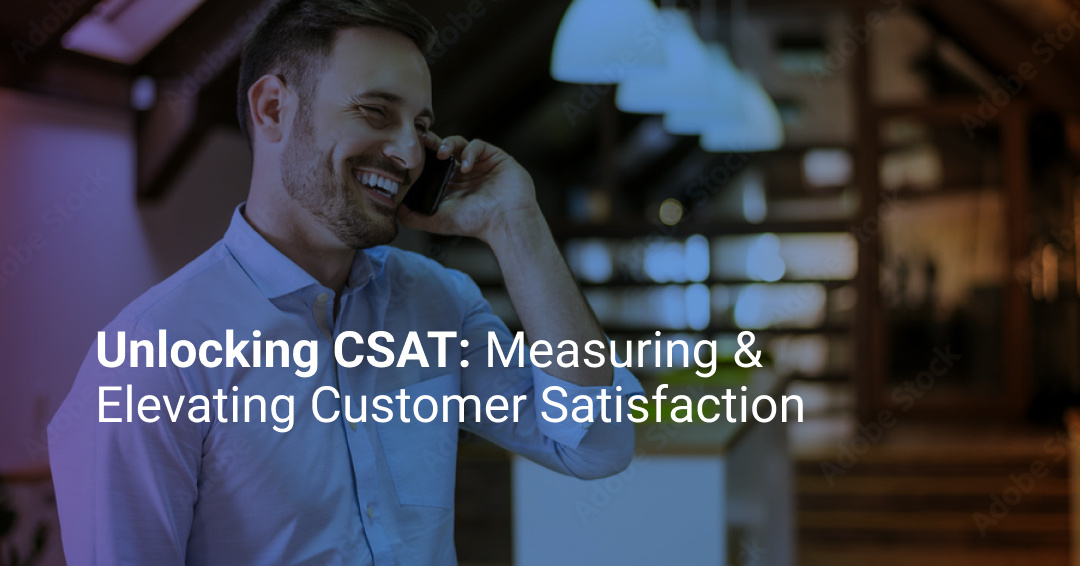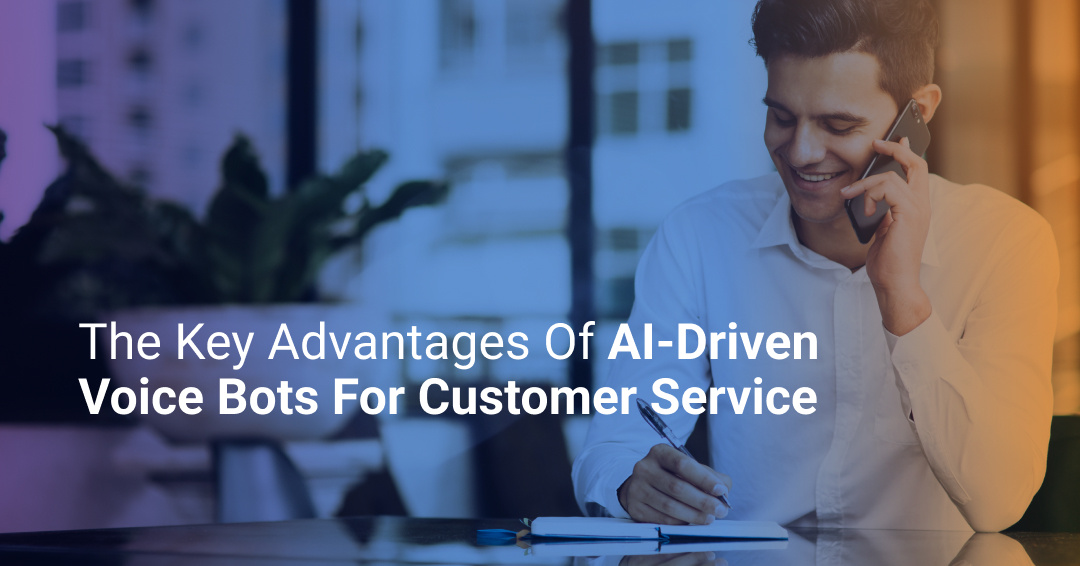What's CSAT Score? How to Measure and Improve It
Businesses across industries have changed or evolved over the decades, but one thing that has remained the same is that their growth is pretty much...
Expectations for individual patient care have increased. Patients want to feel seen and heard by their providers. They also want to trust that those providers work in unison based on their individual needs and ongoing care. These changes have forced healthcare contact centers to reevaluate the tools they use to interact with patients to improve experiences.
Healthcare providers plan to double down on their digital tool investments in 2022 to improve operations and patient experiences. However, this goal comes with the need to modernize healthcare call center solutions and patient care experiences.
Modernization can look different for organizations, but virtual agents for healthcare are at the forefront of this evolution. Healthcare virtual agents meet patient preferences, support healthcare contact center agents, and lower costs for organizations.
Healthcare contact centers handle both inbound and outbound calls for providers. These call centers are often a patient's first point of contact with their healthcare provider. They offer the first opportunity to learn a person's medical history and provide individual patient care.
The effects of the pandemic drastically impacted hospitals and healthcare workers, including healthcare contact center agents. In response to this crisis, the healthcare industry has increased the use of telehealth and other digital healthcare call center solutions to provide care.
In tandem with these events, "healthcare systems face a growing demand for services, rising costs, and a workforce that is struggling to meet patient needs." AI tools that automate tasks are leading solutions to healthcare call center challenges because of the benefits they provide to operations.
AI tools, particularly healthcare virtual agents, have the "potential to transform how healthcare is delivered" by alleviating the current stressors healthcare contact centers face. Some of these stressors include staffing challenges, high call volumes, and more.
In a broader context, these tools are called intelligent virtual agents (IVA). An IVA is an AI-enabled communication tool that generates personalized responses to users. IVAs use intelligent tools to understand human nuance and continuously gather information during interactions. This capability is beneficial in healthcare settings where callers have unique health concerns and call center agents strive to provide quality individual patient care.
Research by McKinsey & Company, quoted above, shows that AI has a direct positive impact on the patient. Therefore, healthcare virtual agents should be top of mind when evaluating healthcare call center solutions due to three key benefits:
Health management processes can improve through increased access to personalized care via self-service options. Healthcare virtual agents can also connect patients to live agents who can support more complex health needs or questions. It is not about replacing human-assisted health options but rather about solving the most frequently asked scenarios that do not require a human counterpart.
Implementing AI also helps call centers Improve operations by assisting human agents in prioritizing the calls they handle. This results in cost savings related to IT resources and staffing, lower burnout, and lower churn ratios for your contact center, all while allowing you to support more patients.
Strengthened innovation through healthcare automation and intelligent tools helps contact centers track and report data about patients to the team of providers. This process can also automatically help contact centers with compliance and privacy concerns.
As one of the industries handling some of the most sensitive information, implementing AI-enabled communication tools has a clear impact that reduces risk and human error.
Using AI tools to measure patient satisfaction is another way in which automation can help contact centers in the healthcare sector. Instead of having a human agent handle patient satisfaction tasks, an automated process can be triggered and logged to help decision makers understand areas for improvement.
Today, the stakes are high for a healthcare contact center to provide personalized care for every patient. Approaching how to improve patient care can be daunting when hospitals and contact centers are short-staffed. However, healthcare providers must plan for and anticipate the future needs of patients to be long-term partners in their care.
Before implementing a virtual agent to improve healthcare, it is important to understand your patients and identify their needs. This includes their health needs, communication preferences, and even technology aptitude. These elements are just a cursory glance of what is required to design an effective healthcare virtual agent for your patients. Mosaicx helps organizations create detailed plans to ensure the virtual agent will best support operations and individual patient care.
Download Now: Enhancing Patient Support Healthcare Playbook [Get Your Copy]
IVAs have various use cases, so it is wise to determine the high return on investment areas. The Mosaicx team can lead this process and identify roadblocks that could hinder ROI. For example, one roadblock to providing personalized care is having the right resources to meet patients' expectations. If the healthcare contact center faces staffing challenges, the organization would want to design and deploy the healthcare virtual agent to automate tasks for callers and truly supplement its existing employees. This could include leveraging the virtual agent to offer self-service options, 24/7 nurse call lines, and personalized healthcare contact center automation.
A few self-service use cases for healthcare contact centers include scheduling and confirming appointments, managing prescription refills, providing clinic directions, and facilitating bill payment. Patients can navigate and resolve these needs in just a few clicks or spoken words. However, if the situation ever evolves in complexity, the healthcare virtual agent will route the caller to a live agent to ensure the best care.
For the virtual agent to truly improve patient care, the healthcare contact center needs to understand the use cases the tool will support and then set rules for the technology. These rules might include when to direct calls to a live agent based on specific keywords or phrases or when to send communications to patients based on past interactions and experiences. The organization and provider can update the rules as patients' needs evolve.
While this industry is constantly evolving, given the nature of artificial intelligence technologies, there are general principles and best practices for healthcare contact centers to follow when implementing AI.
Managing large amounts of information, particularly patient information, means building a system that allows you to navigate that complexity while also being able to provide personalized care. Thankfully, AI and machine learning technologies thrive on large data sets and, in fact, rely on data-rich systems to provide more granular and accurate information.
From the patient’s perspective, it is also essential that they feel like their needs are being personally taken into account. Sometimes, more complex issues or nuanced scenarios may require a human agent to intervene, in which case the conversational AI partner must be able to identify this need and successfully transfer the call.
Implementing AI should ultimately help customers get better service as much as it helps contact centers streamline their work.
Integrating virtual agents and AI-powered solutions with EMRs/EHRs is the easiest way to ensure a seamless process for patients. It is vital that before choosing your AI partner, you have a clear understanding of how well they integrate and how much technical work and debt may be required for integration.
A due diligence process to investigate provider compatibility is almost always the first step before moving forward. Like most industries, all sorts of products and services are available, but ultimately, you must find the partner that best suits your contact center needs and strengths.
A great AI partner will have the capacity to permanently improve based on new information and feedback from users and your workforce. The last thing you want to do is to partner with a virtual agent or AI provider that doesn’t have the flexibility and capacity to iterate, learn, and adapt to new market conditions and user needs.
In a technologically hungry world, where the velocity of improvement and innovation is faster than ever, you need an expansive partner ecosystem to help you compete in the long run.
While it is easy to assume that implementing artificial intelligence is primarily a technological process, the reality is that beyond software, a human component needs to be aligned with the overall efforts. Your human agent teams must learn to interact with AI as a technology that augments their capabilities and helps them do better work.
That may mean learning to let go of familiar patterns and habits, and adapt to more strategic approaches with a higher cognitive load to handle more difficult interactions. Your team must learn to adapt to this new paradigm, ensuring that they work in tandem not against your new AI systems.
Healthcare contact centers can rest easy knowing that virtual healthcare agents relieve agents of significant burdens and contribute to cost savings. IVAs offer a future-proof solution to the stressors healthcare contact centers face today and could confront down the road.
Mosaicx expands healthcare contact center automation capabilities and makes quality individual patient care a cost-effective reality. Mosaicx simplifies implementation and design to create a unique experience for the organization and, most importantly, the patient.
Every organization in the healthcare sector might approach its modernization efforts differently. However, armed with a greater understanding of patients' needs and available technology, healthcare contact centers can use healthcare virtual agents to improve individual patient care.
Part of patient care is creating a positive patient experience, and poor communication is one of the most noted factors in when someone has a poor experience. Fortunately, virtual agents can overcome healthcare communication challenges as well.

Businesses across industries have changed or evolved over the decades, but one thing that has remained the same is that their growth is pretty much...

Customers have several major expectations from modern businesses, but none is as challenging as them reading your mind to anticipate support you...

The classical understanding of customer service is being significantly changed as more and more businesses shift toward artificial intelligence (AI)...
